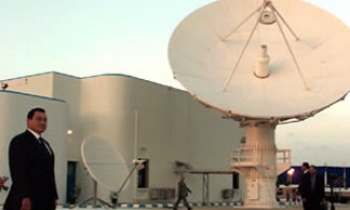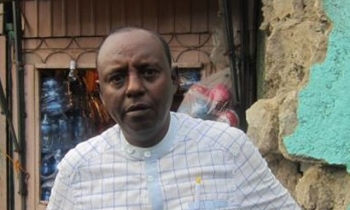Suspected September 11 mastermind Khalid Sheikh Mohammed has confessed to the beheading of American journalist Daniel Pearl, a central role in 30 other attacks and plots in the US and worldwide that killed thousands of victims, said a revised transcript released Thursday by the US military.

"I decapitated with my blessed right hand the head of the American Jew, Daniel Pearl, in the city of Karachi, Pakistan," Mohammed was quoted as saying in a transcript of a military hearing at Guantanamo Bay, Cuba, released by the Defence Department. "For those who would like to confirm, there are pictures of me on the Internet holding his head," he added.
Mohammed's claimed involvement in the 2002 murder of the Wall Street Journal reporter was among 31 attacks and plots — some of which never occurred —he took responsibility for in a hearing Saturday at the US naval prison at Guantanamo Bay, Cuba, the Pentagon said.
It released the bulk of the transcript late Wednesday, but held back the section about Pearl's killing to allow time for his family to be notified, said Defence Department spokesman Bryan Whitman.
Daniel Pearl was abducted in January 2002 in Pakistan while researching a story on Islamic militancy. Mohammed has long been a suspect in the slaying, which was captured on video.
Sealing a legacy of historical notoriety, Mohammed portrayed himself as al-Qaida's most ambitious operational planner in a confession to a US military tribunal that said he planned and supported a series of terrorist attacks, topped by September 11. The gruesome attacks range from the suicide hijackings of September 11, 2001 —in which nearly 3,000 people died —to a 2002 shooting on an island off Kuwait that killed a US Marine. Many plots, including a previously undisclosed plan to kill several former US presidents, were never carried out or were foiled by international counter-terror authorities.

"I was responsible for the 9/11 operation from A to Z," Mohammed said in a statement read Saturday during a Combatant Status Review Tribunal at the US detention facility at Guantanamo Bay, Cuba. Mohammed's confession was read by a member of the US military who is serving as his personal representative.
US President George W Bush announced that Mohammed and 13 other alleged terror operatives had been moved from secret CIA prisons to the US Naval Base at Guantanamo Bay last year. They are considered the 14 most significant captures since 9/11. The military began the hearings last Friday to determine whether the 14 should be declared "enemy combatants" who can be held indefinitely and prosecuted by military tribunals.
Whitman said authorities would decide how credible it is that Mohammed participated in so many plots if he is tried by a military tribunal, which many expect will eventually happen. "These are his words." Whitman said.
Mohammed, known as KSM among government officials, was last seen haggard after his capture in March 2003, when he was photographed in a dingy white T-shirt with an over-stretched neck. He disappeared for more than three years into a secret detention system run by the CIA.
In his first public statements since his capture, his radical ideology and self-confidence came through. He expressed regret for taking the lives of children and said Islam does not give a "green light" to killing.

Yet he finds room for exceptions. "The language of the war is victims," he said. He also said that in the same way that some consider George Washington, the first US president, to be a hero for his role in the Revolutionary War, many Muslims view al-Qaida leader Osama bin Laden in the same light. "He is doing same thing. He is just fighting. He needs his independence."
In laying out his role in 31 attacks, his words drew al-Qaida closer to plots of the early 1990s than the group has previously been linked, including the 1993 World Trade Centre truck bombing in which six people died. In listing the 28 attacks he planned and another three he supported, Mohammed said he tried to kill international leaders including Pope John Paul II, US President Bill Clinton and Pakistani President Pervez Musharraf.
He said he planned the 2002 bombing of a Kenya beach resort frequented by Israelis and the failed missile attack on an Israeli passenger jet after it took off from Mombasa, Kenya. He also said he was responsible for the bombing of a nightclub in Bali, Indonesia. In 2002, 202 were killed when two nightclubs there were bombed.
Other plots he said he was responsible for included planned attacks against the Sears Tower in Chicago, the Empire State Building and New York Stock Exchange in New York City, the Panama Canal, and Big Ben and Heathrow Airport in London —none of which happened.









